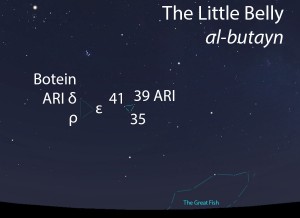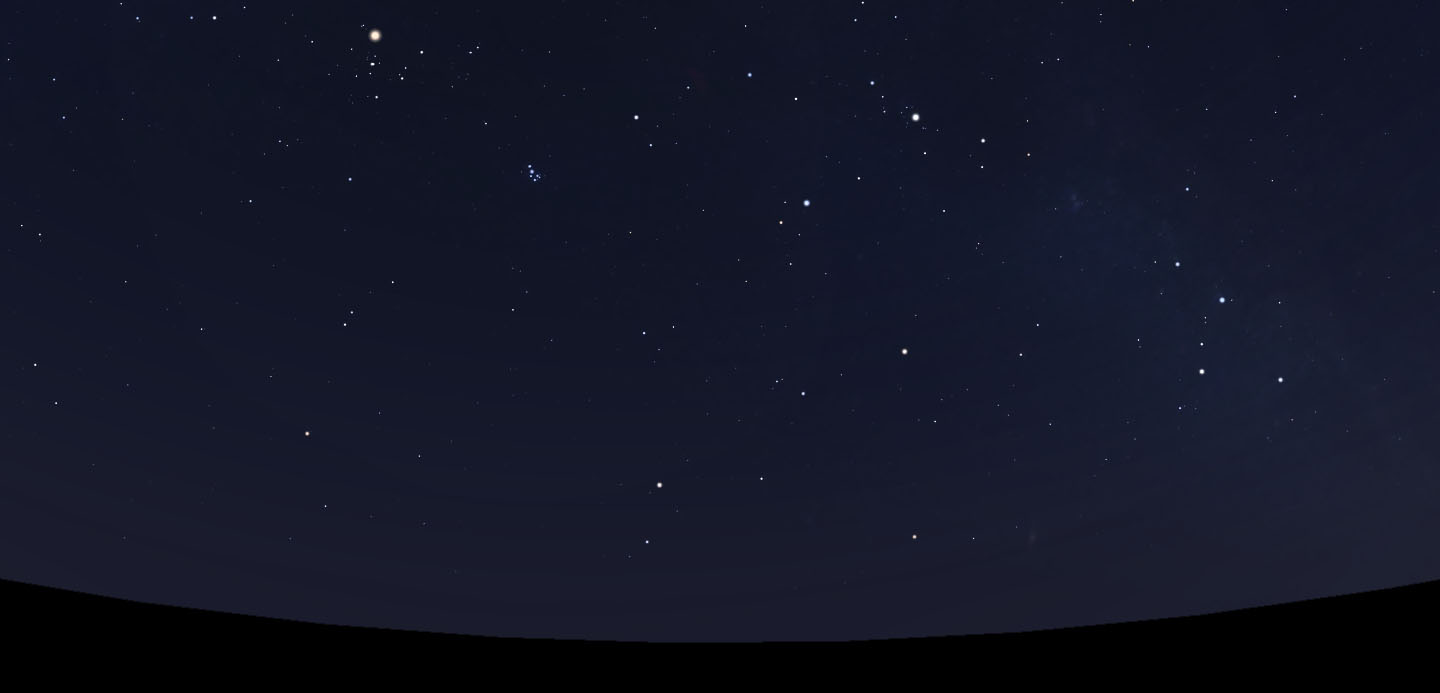Star Names
The Little Belly (al-butayn)
The Belly of the Lamb (batn al-hamal)
The Belly of the Lamb is a trio of stars located between the Horns of the Lamb (qarna al-hamal) and its Fatty Tail (alyat al-hamal). The Arabic term hamal refers to a first-year lamb, not to a male ram like the Greeks saw in their constellation Aries. Specifically, the celestial Lamb is a lamb from among the fat-tailed sheep that were bred for their large fatty rumps and tails.

The Little Belly (al-butayn) as it appears in the west about 45 minutes before sunrise in mid-November. Sky simulations made with Stellarium.
Appearance
A trio of stars located between the Two Signs and the modern-day Pleiades star cluster. The stars are arranged in an equilateral triangle that resembles the placement of trivet stones under a cooking pot. Two groups of stars have been identified by different authors as the Little Belly. The first group (35, 39 and 41 ARI) is brighter and more likely to have been used as part of the calendar of lunar stations. This group is also consistent with the stars of the corresponding Indian nakshatra in this area of the sky (see below).
Modern Identification
Probable identification:
41 ARI, blue-white star, magnitude 3.6
39 ARI, orange giant star, magnitude 4.5
35 ARI, blue-white star, magnitude 4.7
Alternate identification:
δ ARI (Botein), orange giant star, magnitude 4.4
ε ARI, white star, magnitude 5.2
ρ ARI, yellow-white star, magnitude 5.6
Timing
The stars of the Little Belly rise and set within 2 days of each other. Ibn Qutayba (d. 879 CE) reported that the Little Belly was said to rise on the morning of April 29 and set on the morning of October 30. On account of the precession of the equinoxes, today we can expect to observe the Little Belly setting in late November and rising in mid-May, as seen from the latitude of Tucson. (See How to Observe on the About page for more on this topic.)
Rain Stars
The Little Belly of the Lamb does not figure among the rain stars.
Lunar Stations
In early listings of the lunar stations, the Little Belly (al-butayn) is the fourth station of the year. This was later changed to the second lunar station after the stations were adjusted to begin with the vernal equinox. The stars of the Little Belly match the Hindu nakshatra called Bharani.
Related Stars and Celestial Complexes
The Belly of the Lamb is part of the Lamb (al-hamal, الحمل) folkloric celestial complex. The Belly connects to the Horns of the Lamb (qarna al-hamal, قرنا الحمل) and its Fatty Tail (alyat al-hamal, ألية الحمل).

